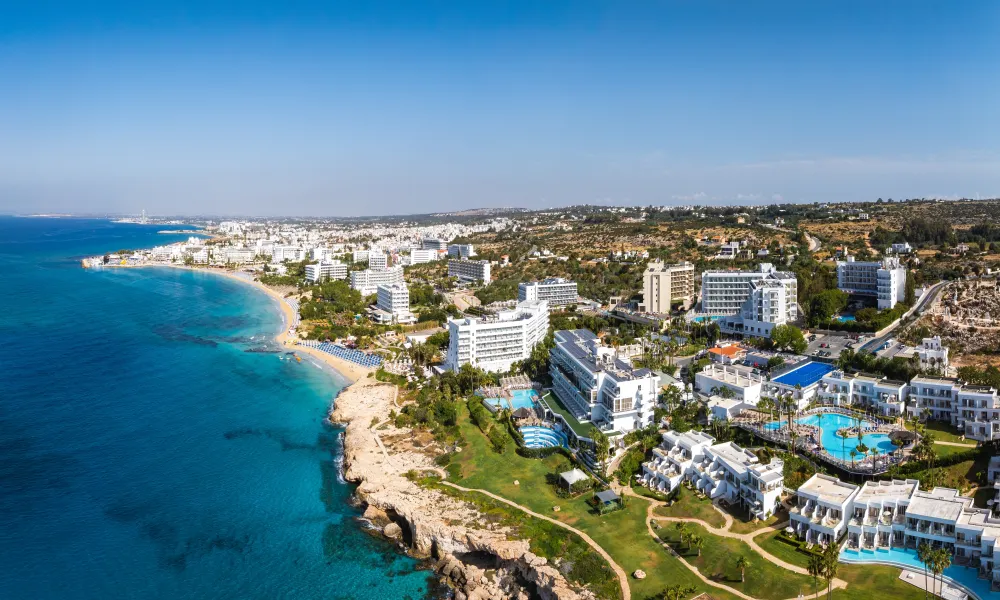Climate change and its dramatic effects, most of which are now irreversible through the sheer passage of time and worsening of conditions, will be palpable in the Cypriot economy over the coming years, with major concerns on impact to the tourism sector, a vital GDP contributor.
'Specific measures are being taken as a matter of urgency' Deputy Tourism Minister Costas Koumi tells Politis.
Findings from a summary report of a project funded by the Ministry of Finance and the Economics Research Centre on "Climate Change and Its Impact on the Cypriot Economy," as well as the research grant "Economic Policy Modelling Hub" funded by the European Commission’s Recovery and Resilience Plan (RRP) for Cyprus, indicate that the country-as confirmed multiple times by climate experts and weather realities on the ground- is particularly vulnerable to climate change.
Using specific models, the macroeconomic impacts of climate change on the Cypriot economy were analysed, primarily in regard to physical risks from environmental degradation and to a lesser extent transition risks—that is, from the economic shifts required for the transition toward a low-carbon future, resilient to climate change.
The analysis takes into account both aggregate and sectoral levels. The main finding here is that physical short- and long-term risks related to climate change may be quite significant. Timely and ambitious transition, it notes, reduces long-term macroeconomic costs and preserves fiscal space.
Conversely, as indicated, delaying action leads to persistent contraction across all sectors and abrupt revenue losses. The transition requires targeted policy initiatives focused on enhancing the productivity of clean energy.
An External Risk
Notwithstanding the fact that the island’s economy is based on services, mostly tourism, financial and fiduciary services, and shipping, and does not depend heavily on high-emission industries, climate change, according to the report, functions as an external risk that spreads throughout the production chain.
The Ministry of Finance references three scenarios on the impact of climate change.
In the "business-as-usual" (BAU) scenario, the economy contracts by nearly 8% and 25% in the short term (by 2040) and long term (by 2100) respectively. In 2050, cumulative GDP losses could amount to €29 billion. By 2100, the gap widens dramatically: €162 billion under BAU (more than five times the current GDP).
If agricultural, tourism, financial and service production represent 1.7%, 13%, and 8% of total output, this would mean that by 2050, cumulative GDP losses in Cyprus under BAU could reach approximately €0.5 billion in agriculture, €3.8 billion in tourism, and €2.3 billion in financial services.
The analysis did not account for climate shocks that now occur much more frequently (wildfires, hurricanes, floods) and could dramatically raise the economic and fiscal burden in the short term, nor does it incorporate policy responses at the sectoral level and behavioural responses of households.
Initial signs
"Climate change constitutes one of the greatest environmental and developmental challenges globally, with impact and threats across many sectors, certainly not excluding the tourism’, the report says.
Deputy Tourism Minister Costas Koumi remarked to 'P' that that the main effects of climate change are visible across the world, such as, ‘extreme weather events, temperature hikes mainly during the summer, floods and long periods of drought, as well as coastal erosion from rising water levels.’
And most significantly, he added, the first signs of such intense impact-from which Cyprus had been largely spared-have now appeared.
Koumi noted that planning and implementing targeted actions to address climate change is a matter of priority, indicating that "we have already implemented measures, such as informing the industry through conferences, providing subsidies aimed at replacing outdated equipment with eco-friendly devices and other action to this end.’
Hoteliers' Concerns
‘The impact of climate change is of significant concern, and we are evaluating conditions’, Politis heard from Hoteliers Association Director General Christos Angelides.
High temperatures, he added, are not tourist-friendly and ‘we are forced to live on the edge regarding water, electricity, and sewage.’
Angelides noted the urgency of managing natural resources, with urban forestry measures being necessary in order to extend greenery, planting trees that create shade.
‘Following the formulation of these proposals’, he said, ‘we will schedule meetings with government officials.’.
Both scenarios and solutions must be ready, to quickly protect the economy.
Chrysaimili Psilogeni of the Cyprus Tourist Entreprises Association notes that rising temperatures, extreme weather events, and pressure on natural resources, such as water, directly affect the sustainability of destinations and hospitality businesses.
‘Adaptation and measures are imperative both at state and business level’, she concluded, through sustainable development strategies and investments in resilient infrastructure.
